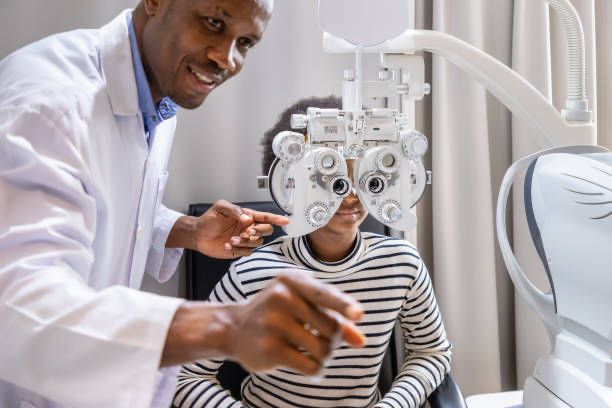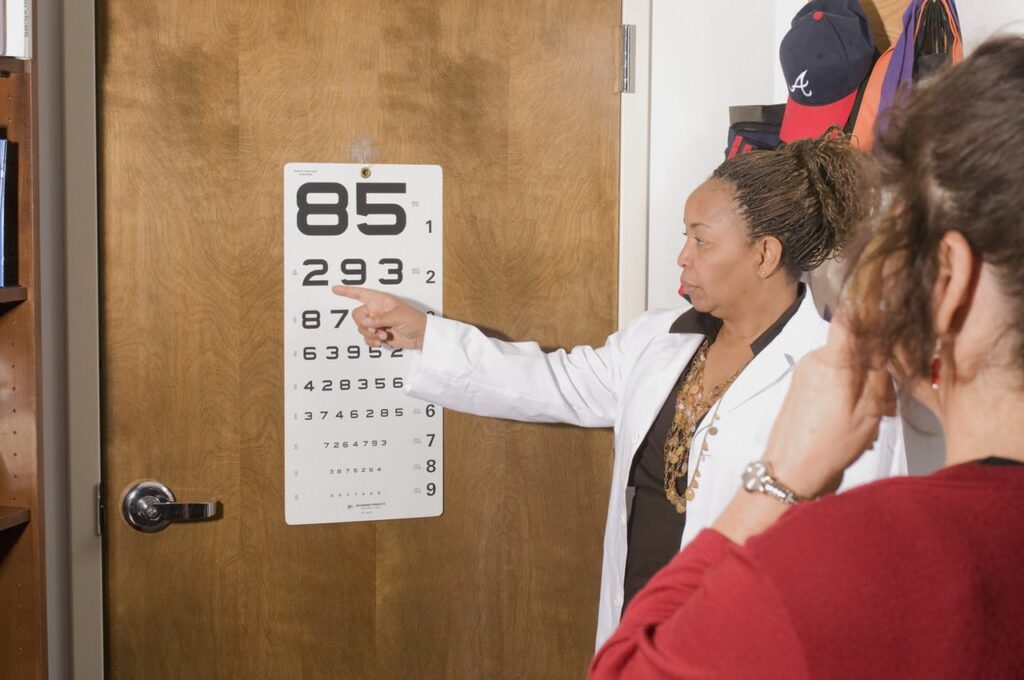Having poor eyesight is a challenge. Not only does it come with a lot of squinting but it also tires you out easily. As time progresses, you are advised to get medicated glasses and contact lenses to help you with vision correction and thus begins your “double-eyed” journey.
Wearing glasses, though a wise decision, could be frustrating sometimes. If you want to appear cool, you don’t attach a strap to your glasses, but this only makes it prone to falling off or breaking. Then there’s the issue of not wearing it during some activities or having to wear it during others.
In this case, you may feel the urge to take off your glasses forever but you can’t do it because it won’t guarantee clearer vision. However, what if there’s an equally permanent alternative solution? That is, you may not have to wear glasses again when you take on this alternative.
Laser Eye Surgery
Recently on Twitter, a video of a lady sharing her laser eye surgery journey went viral. Many of the comments under the video, especially from Nigerians were along the lines of, “so with 2.5million naira, I can stop wearing glasses forever?” Even the popular doctor, Aproko Doctor tweeted ; “I am seriously considering laser eye surgery.” Perhaps after watching the video, many eye-glasses users are also considering opting for it.
But what is laser eye surgery?
Laser In-Situ keratomileusis (or LASIK) is a refractive surgery done to correct myopia, hypermetropia and astigmatism. It involves the use of a laser to restructure the cornea. A laser is a device which emits coherent light while the cornea is a part of the eye that holds the majority of its optical power.

Doing a laser eye surgery checks three things namely;
Myopia or short-sightedness: this is a case whereby objects in the distance appear blurry but closer ones appear normal. This includes written words as well. If you find it difficult to see words written on a paper, or even your phone at a distance such as your arms length, you may be myopic.
Hypermetropia or long-sightedness: this is an opposite of myopia. It occurs when objects in the distance are seen clearly but closer objects appear blurry. You may be diagnosed with this illness if you have this major symptom.
Astigmatism: this is a case whereby your vision is blurry when objects are placed at any distance. That is, seeing close and far objects is a challenge. Often than not, people with this condition are born with it.
So, if you have either of these aforementioned conditions and are tired of using glasses, you can opt for laser eye surgery instead. However, the surgery isn’t meant for everyone.
You are not eligible for laser eye surgery if you are:
Pregnant: when pregnancy sets in, changes occur in the cornea. This can prove difficult for vision correction by laser eye surgery. It is advisable to do it before becoming pregnant or best, after months of birth.
Underage: an underage between ages 0-17 is not advised to do a laser eye surgery. Although there are exceptions, your vision keeps changing till you’re in your twenties so this could alter or affect the surgery. In fact, many surgeons would advise that you be patient till you’re 24 because that is when the eye vision stops changing.
Ill: people with severe illnesses such as diabetes are not eligible for laser eye surgery. This is because there are blood vessels in the retina which are damaged if you’re diabetic, thus making you no candidate for the surgery. However, people with mild diabetes could perform the surgery.

In order to discover your eligibility, you’d need to see your ophthalmologist. In fact, no surgeon would perform the surgery on you unless you have gone through several tests to gauge your eligibility status.
How much does laser eye surgery cost in Nigeria.
In 2020, Ozzy Etomi shared her laser eye surgery journey which she underwent in Victoria Island, Lagos. First, she mentioned that the surgery took no less than ten minutes and she was administered an anesthetic eye drop before it began. Then demystifying the amounts she spent on the whole procedure, she listed;
Registration – N15,000
Consultation/Tests – N100,000
Surgery – N1,100,000
Post-surgical paraphenelia (such as glasses and eye drops) – N20,000
Article written by Sola Tales
